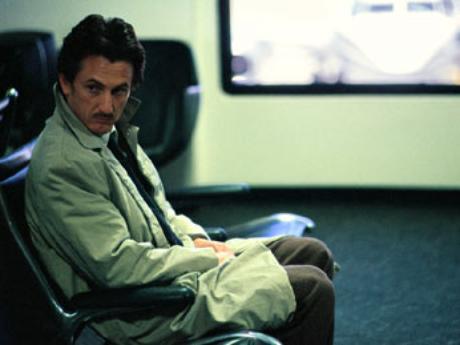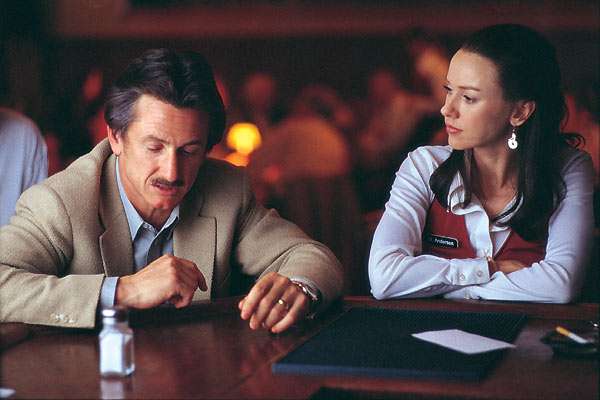
Then again, Samuel Byck wasn’t like most people either…in fact, that may be the biggest problem with this otherwise haunting film. Played for laughs in the Sondheim Assassins, Byck here is portrayed as a beaten-down American Everyman of the Willy Loman/Travis Bickle school, albeit one with a Pulp Fiction-like problem with authority and a frozen run of luck like you read about. But, while the film’s hold lies in Sean Penn’s powerful portrayal of a down-on-his-heels, borderline-stable guy who gets one too many doors slammed in his face (to Penn’s credit, his performance never really feels like a stunt, as it might have with a lesser actor), the real Samuel Byck was an even stranger bird than this film lets on. For example, there’s no mention of Byck’s protesting outside the White House in a Santa suit here, and the whole tapes-to-Leonard-Bernstein angle is played as straight as it possibly can be.
But, historical veracity aside, The Assassination of Richard Nixon still makes for a grim and compelling 90 minutes of darkening gloom, anchored by Sean Penn’s slow, fidgety burn. (Watts, Don Cheadle, Michael Wincott, and Jack Thompson all do good character work here, but the film is Penn’s, and he’s the only one to leave a mark.) The movie’s unrelenting downward trajectory is clear from the opening titles, and the final scene at BWI airport probably played a few minutes too long, particularly as Byck awaits boarding for his final destination. All in all, though, The Assassination of Richard Nixon is a somber inquiry into a life of quiet desperation, and a sad reminder that, regardless of what our American dream may promise, there are no guarantees in this world, and all too often no respite for the damned.

